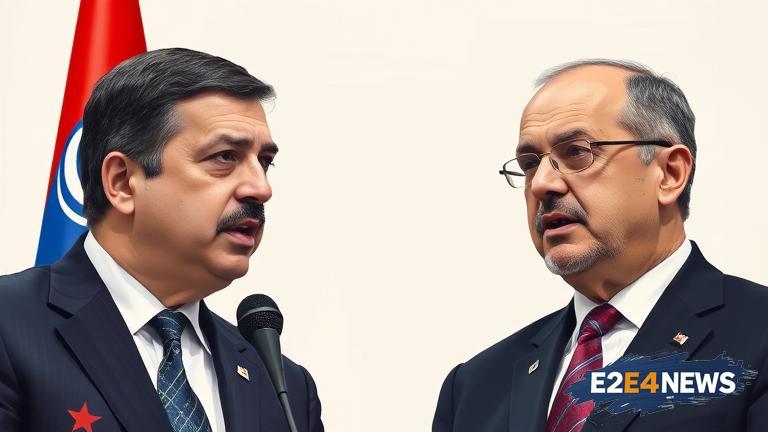The opposition leader in Armenia has accused Prime Minister Nikol Pashinyan of effectively agreeing to Azerbaijan’s corridor scheme, which would allow Azerbaijan to transport goods and people through Armenian territory. This move has sparked widespread criticism and concern among Armenians, who fear that it could lead to a loss of sovereignty and territorial integrity. The opposition leader claims that Pashinyan’s government has been secretly negotiating with Azerbaijan and has already agreed to the corridor scheme, despite publicly denying it. The scheme would involve the construction of a road and railway corridor through Armenia’s Syunik province, which would connect Azerbaijan to its exclave of Nakhchivan. The opposition leader argues that this would give Azerbaijan a strategic advantage and allow it to exert pressure on Armenia. The Armenian government has denied the allegations, saying that it has not agreed to any corridor scheme and that it will not compromise on the country’s sovereignty. However, the opposition leader claims that the government’s actions speak louder than its words, and that the construction of the corridor is already underway. The issue has sparked a heated debate in Armenia, with many citizens taking to the streets to protest against the government’s alleged plans. The opposition leader has called for the government to come clean about its negotiations with Azerbaijan and to put the issue to a national referendum. The Armenian government has faced criticism from other countries, including Russia and the United States, which have expressed concerns about the corridor scheme and its potential impact on regional stability. The European Union has also weighed in on the issue, calling for a peaceful resolution to the conflict and respect for Armenia’s sovereignty. The corridor scheme is part of a broader package of agreements between Armenia and Azerbaijan, which are aimed at resolving the long-standing conflict over the disputed region of Nagorno-Karabakh. The conflict has been ongoing since the early 1990s and has resulted in the displacement of hundreds of thousands of people. The opposition leader’s accusations have added fuel to the fire, with many Armenians feeling that their government is not doing enough to protect their interests. The situation remains tense, with protests and demonstrations continuing in Armenia. The international community is watching the situation closely, with many calling for calm and restraint. The Armenian government has a difficult task ahead of it, as it tries to balance its relations with Azerbaijan and other countries, while also addressing the concerns of its own citizens.
